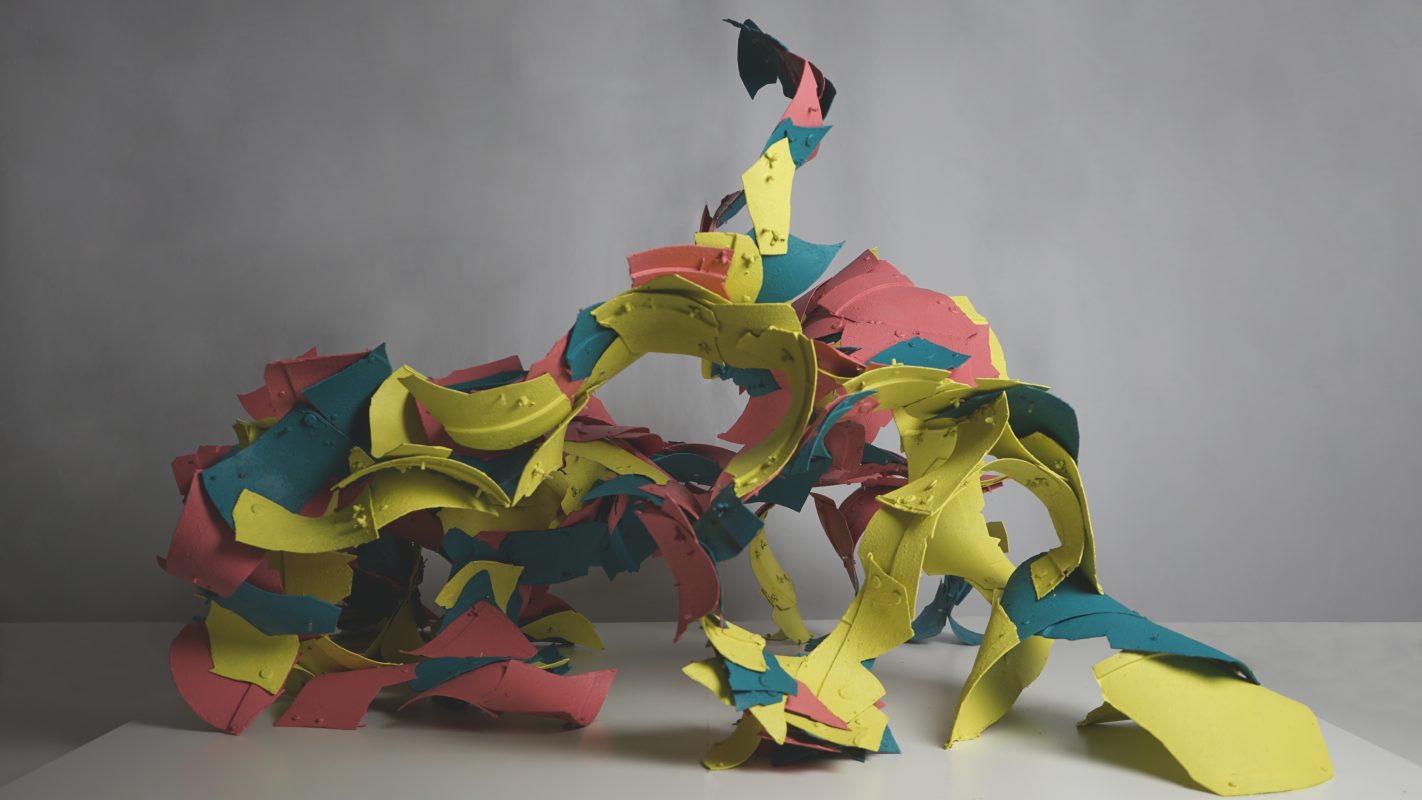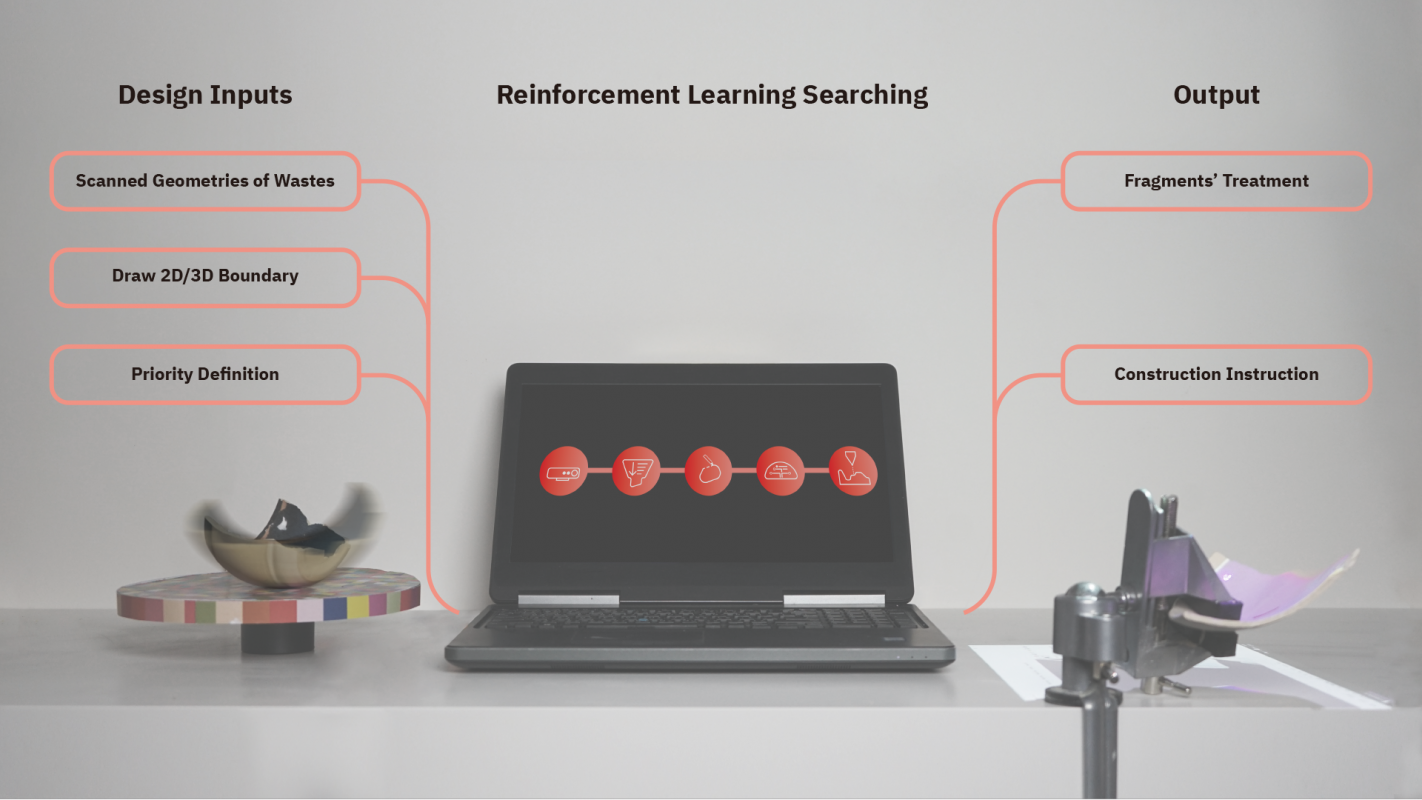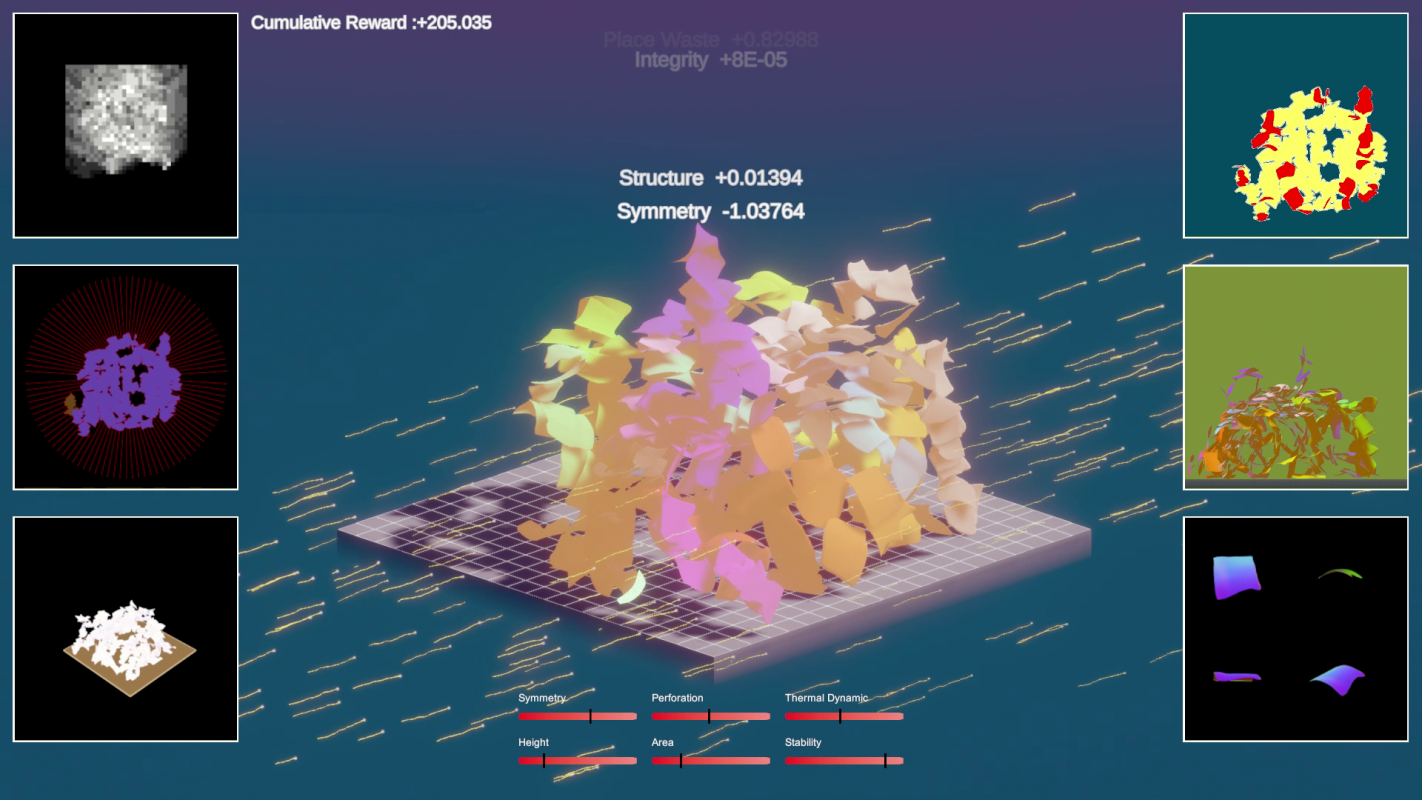Reform Standard invents an alternative design workflow for architectural design industry that achieves a complete circular economy. Reform Standard is a machine-learning-driven searching engine that designs new structures generated from existing wasted materials. Using reinforcement learning, machine vision, and automated searching process, the project inaugurates a material-informed design circle and converts wastes into potential resources.
The project starts with questioning the problematic standardization that is widely practiced in all industries. Standardization brings significant benefits to social and economic value with its organizational efficiency. However, it also generates increasing wastes and wasteland due to its one-way process that takes homogeneous inputs and processes. Reform Standard argues that an alternative level of flexibility in standardization – or a counter-process, “de-standardization” – through AI and capacity of computers’ searching power, will eventually revalue/objectify waste and redefine the notion of wasteland. Such an approach challenges the standardization of industries, production and design processes. With such an approach, architectural design can be informed by the material input at the beginning of design, which brings the potential to a better economic cycle and social value with more context-specific. The notion of wastes and wasteland in the future world could then be redefined as new natural land to be explored, designed and occupied by inhabitants and economic entities.
The project sorts and transforms irregular chunks of wasted broken plastics into a new form. Instead of recycling those wastes in an energy-intensive process, the engine is finding the intricacy and new machine-oriented aesthetics in those otherwise neglected wastes. Reform Standard presents the process of scanning, sorting inventory and structure generation. Reform Standard not only revitalizes waste materials’ lifecycles but also develops a more sustainable way of design that fundamentally changes the way we perceive, and evaluate.



